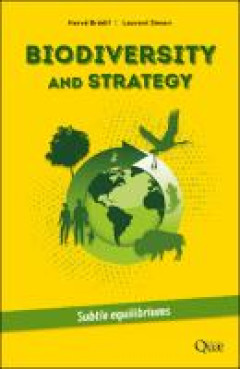Ditapis dengan
E-book Aviation Noise Impact Management : Technologies, Regulations, and Soci…
Over the last decades and since the’60 s, civil aircraft noise has been mitigatedsignificantly:theacousticalenergyemittedbyaveragemoderncivilaircraft—directlyrelated to the noise it is responsible for—is somehow only 10% of an aircraft of thesame size in the’60 s. This success was made possible thanks to specific researchefforts which focused on reducing the aircraft noise at its source…
- Edisi
- -
- ISBN/ISSN
- 9783030911942
- Deskripsi Fisik
- 326 hlm
- Judul Seri
- -
- No. Panggil
- 628.5 GEL a
E-book Digital Business Models : The New Value Creation and Capture Mechanism…
Let’s stop the time, and rewind. Fifteen years ago, almost none of us had a smart-phone–the iPhone was first released in the United States on June 29, 2007. Tenyears ago, many of us owned a smartphone, and if we could do almost everything thatwe can do today via digital devices (the iPad was released in April 2010), most of usdid not.The digital devices were available; however, they were no…
- Edisi
- -
- ISBN/ISSN
- 9783110762556
- Deskripsi Fisik
- 197 hlm
- Judul Seri
- -
- No. Panggil
- 658.02 RON d
E-book Megaliths of the World, Volume I
Bringing together the latest research on megalithic monuments throughout the world, 150 researchers offer 72 articles, providing a region-by region account in their specialist areas, and a summary of the current state of knowledge. Highlighting salient themes, the book is vital to anyone interested in the phenomenon of megalithic monumentality.
- Edisi
- -
- ISBN/ISSN
- 9781803273211
- Deskripsi Fisik
- 1428 halaman
- Judul Seri
- -
- No. Panggil
- 930.1 LAP m
E-book Capability Brown, Royal Gardener : The Business of Place-Making in Nor…
Yet Brown’s family lived in Kirkhale, in Northumberland, a fairly typical small rural community, over 300 miles to the north, far from the glittering metropolitan world. His father, who died in 1720 when Brown was only four, was a farmer and land agent to the local lord, Sir William Loraine, yet the young Brown was educated at the local school in Cambo – possibly through the good offices of…
- Edisi
- -
- ISBN/ISSN
- 9781912482252
- Deskripsi Fisik
- 241 hlm
- Judul Seri
- -
- No. Panggil
- 712.5 BOT c

E-Book Biodiversity and Strategy: Subtle Equilibriums
Biodiversity conservation calls for a revolutionary approach to our relationship with nature and the living world. But it also requires completely rethinking the way we develop international policies and strategies. While these instruments must deal with a highly complex reality, they are too often viewed as simple action plans. Measures and initiatives that are focused on mainly technical solu…
- Edisi
- -
- ISBN/ISSN
- 9782759238910
- Deskripsi Fisik
- 224 halaman
- Judul Seri
- -
- No. Panggil
- 571.49 BRE b
E-book Knowledge and Networks
The book series on Knowledge and Space explores the nature of human knowledge from a geographical perspective. How to create, share, and adopt new knowledge is a core question in the social sciences. Processes of learning and knowledge creation are the result of social practice and always take place in space and in specific geo-graphical contexts. The eleventh volume is the outcome of the sympo…
- Edisi
- -
- ISBN/ISSN
- 9783319450230
- Deskripsi Fisik
- 386 hlm
- Judul Seri
- -
- No. Panggil
- 304.2 ANS k
E-book The Ocean Revealed
Planet Earth is an ocean planet. We can hardly ignore the fact that the ocean covers almost two thirds of our planet. Since the dawn of time, humankind has had an ambivalent relationship with the immensity and hostility of this very specific environment. However, the ocean holds a strong attraction for human societies, with nearly 40% of the world’s population living less than 100 km from the…
- Edisi
- -
- ISBN/ISSN
- 9782271119070
- Deskripsi Fisik
- 323 hlm
- Judul Seri
- -
- No. Panggil
- 551.46 BOP t
 Karya Umum
Karya Umum  Filsafat
Filsafat  Agama
Agama  Ilmu-ilmu Sosial
Ilmu-ilmu Sosial  Bahasa
Bahasa  Ilmu-ilmu Murni
Ilmu-ilmu Murni  Ilmu-ilmu Terapan
Ilmu-ilmu Terapan  Kesenian, Hiburan, dan Olahraga
Kesenian, Hiburan, dan Olahraga  Kesusastraan
Kesusastraan  Geografi dan Sejarah
Geografi dan Sejarah